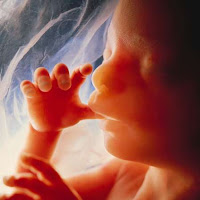 A baby girl is born to a loving set of parents in a rural American town. She takes after her mother, with curious eyes and an infectious smile. Mom and Dad take their new daughter home, delighted that the arduous process of childbirth is over, and settle her into a room they’ve specially prepared.
A baby girl is born to a loving set of parents in a rural American town. She takes after her mother, with curious eyes and an infectious smile. Mom and Dad take their new daughter home, delighted that the arduous process of childbirth is over, and settle her into a room they’ve specially prepared.
At first, everything seems wonderful. The baby is responsive and full of energy. She giggles when she’s tickled and feeds without complaint. But after a couple weeks, her parents notice a slight tremor in her hands, which quickly develops into a jerking movement. The child becomes hyperactive, crying all the time and unable to sleep. A rash appears on her left foot and spreads rapidly upward, engulfing her leg in angry patches of red.
Mom and Dad, panicking, take their daughter to an Emergency Room after she has her first seizure. The doctors are unable to explain what happened, except to confirm that the girl’s brain is extensively damaged. Devastated, the couple take their daughter home and continue to devotedly care for her.
One year later, the mother becomes pregnant again. She wonders: Will this baby encounter the same problem? But this time her doctors conduct a blood test that confirms the presence of phenylketonuria, a rare condition in which the body cannot break down phenylalanine, an amino acid found in foods like milk and eggs. The baby is immediately put on a low-phenylalanine diet, escaping any damage to her body.
As the years pass, she grows up into a beautiful young woman and goes to college. While her dietary restrictions are frustrating, she is grateful to have avoided her sister's fate.
My class was shown a picture of the two sisters in a lecture last week. It was the younger one's wedding day, and she looked radiant in a beautiful wedding dress. Holding onto her arm was her sister, who wore a distant and unfocused expression. The simple existence (or non-existence) of a simple blood test had profoundly altered the destinies of these young women. While the married sister would go on to enjoy marriage, career, children, intellectual pursuits, the other would spend the rest of her days struggling with a severe mental disability.
We often frame our lives in the context of "destiny", the idea that certain events were preordained. But more often than not, one's destiny is determined by access to timely medical intervention; the C-section that saves a baby’s life, the antibiotic that kills a potentially deadly infection, or the vaccine that keeps influenza at bay.
One can't help but reflect on the millions of children ravaged by conditions that are now treatable, and wonder: What kind of lives could they have led? Who could they have become?
Your mention of "what if" scenarios remind me of my own relating to first year university. I find it hard to let go of things that could've happened had I done otherwise.
ReplyDeleteI believe in fate to the extent that we can't control genetics and the pace of society, but for the most part I believe we carve our own destinies. It's up to every individual to make the best with what they've got...